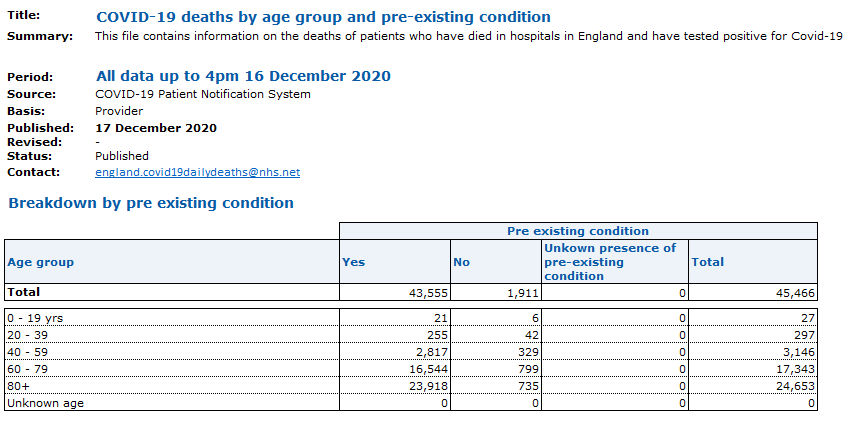As we move into autumn and then to winter, we will be encouraged to have a variety of vaccinations ‘to protect us from infection, reduce pressure on the health service and protect those around us’. This mantra has been repeated so often it is very widely accepted without question. However, I am going to question it because it is not true. A vaccine cannot protect us from infection; the only thing protecting us from infection is our immune system. Details are essential in all areas of medicine. The best thing a vaccine can do is to educate our immune system to recognise a particular pathogen and create antibodies to attack it, if and when it appears in the body.
How much a vaccine may help us depends on how well our individual immune systems are functioning. This is clearly true from the number of elderly people who die from a flu infection each winter despite having had a ‘flu jab’. According to the British Medical Journal there were almost 15,000 excess deaths in the UK during the winter of 2022-23 caused by influenza. These people were susceptible to the disease because they were elderly with poor immune systems. We deteriorate in old age because a variety of our bodily processes become damaged and less efficient, including our immune system. A vaccine does not, and cannot, protect us from infection because if we had no functioning immune system a vaccine would be completely useless.
I am not entirely against the concept of vaccination, but I am concerned by the excessive hype they receive, the ever-expanding number of vaccines made available, the inclusion of toxic adjuvants and the lack of safety studies on both the adjuvants and the vaccines. It is a far better idea to concentrate on improving our immune systems, which can be achieved in the same way we improve all our metabolic processes. Improved nutrition and reduced stress are the important things to look at. The claims made for the elimination of diseases by vaccines are severely exaggerated as shown by this diagram. (Credit to LearnTheRisk.org)
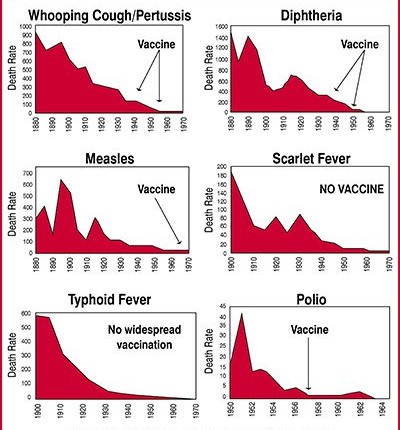
Deaths from infectious diseases were considerably higher in the 1890s and early 1900s. They had declined considerably long before vaccines were introduced, and some diseases declined without having a vaccine. These sharp declines happened when cities introduced proper sanitation and clean water supplies; the poorest people in society earned a little more money and could afford better food; and people became better educated about health. The decline had nothing to do with vaccination and everything to do with sanitation, education and nutrition. (Reference below.)
When humans are metabolically healthy, well fed and live in clean conditions our immune systems are able to function as they should and protect us from disease. We have an innate immune system we are born with, and an acquired immune system, which remembers previous infections. It is a wonderfully complex and whole-body system which has evolved over millions of years. The diagrams below show the various structures and cell types involved in our immune systems. Do you really believe that a commercial product injected in your arm will save you from disease, while this system cannot?
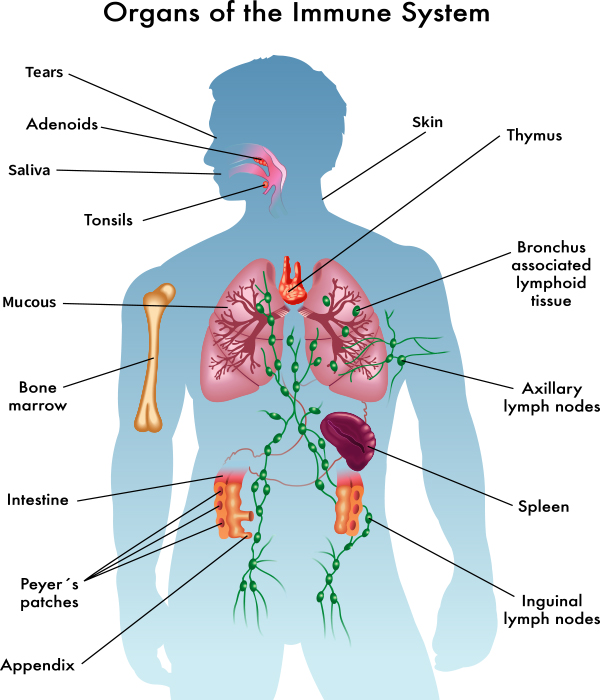
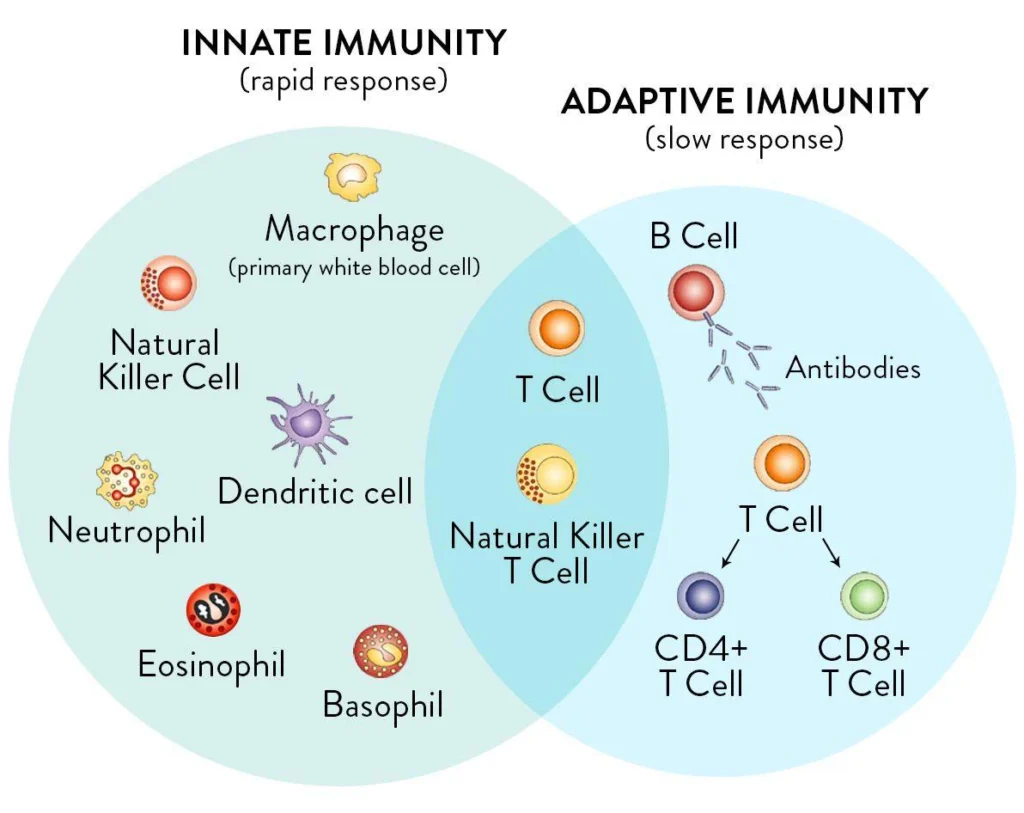
The Pharmaceutical Industry makes an enormous amount of money every year. A lot of people are prescribed and take their drugs every day. The most perfect product from a drug company point of view is one that everybody needs to take whether they are ill or not. The invention and promotion of vaccines has turned every person on the planet into a potential customer for a small group of companies. The proliferation of vaccines has steadily increased along with the profits of vaccine manufacturers. I read recently that drug companies spend more money on marketing than they do on research. Some of that money is spent on doctors and political lobbying, which has successfully convinced the vast majority of people that we all need regular vaccines and boosters to save us from severe disease. If you do an internet search about vaccines you will find pages of ‘expert’ endorsements and you will struggle to find the information I showed at the beginning about diseases declining before the use of ‘jabs’.
If you agree with my premise that the most important defence against infection is a healthy and robust immune system, you may still think the antibodies generated by a vaccine are a bonus which will help to protect to you. This argument makes sense as long as the injection does not cause something else which is harmful. I will give just two examples of harm caused by heavily promoted vaccines.
1. Everyone will remember the extreme response to the respiratory infection known as Covid-19. A great many people were threatened with losing their jobs if they did not have the rapidly produced ‘vaccine’. It was so rapidly produced that it was given ‘emergency use authorisation’ meaning that it could be given without going through the usual multi-year trials. They called it a ‘vaccine’ but it was not a vaccine; it was an experimental gene therapy involving viral genetic code (mRNA). I am not going to cover all the problems with it here but, for those interested, I have references at the end of this piece. I will simply show you a graphic of the VAERS report (Vaccine Adverse Event Reporting System) and remind you we were constantly told it was ‘safe and effective’ and anyone questioning the narrative was a labelled a ‘covidiot’.
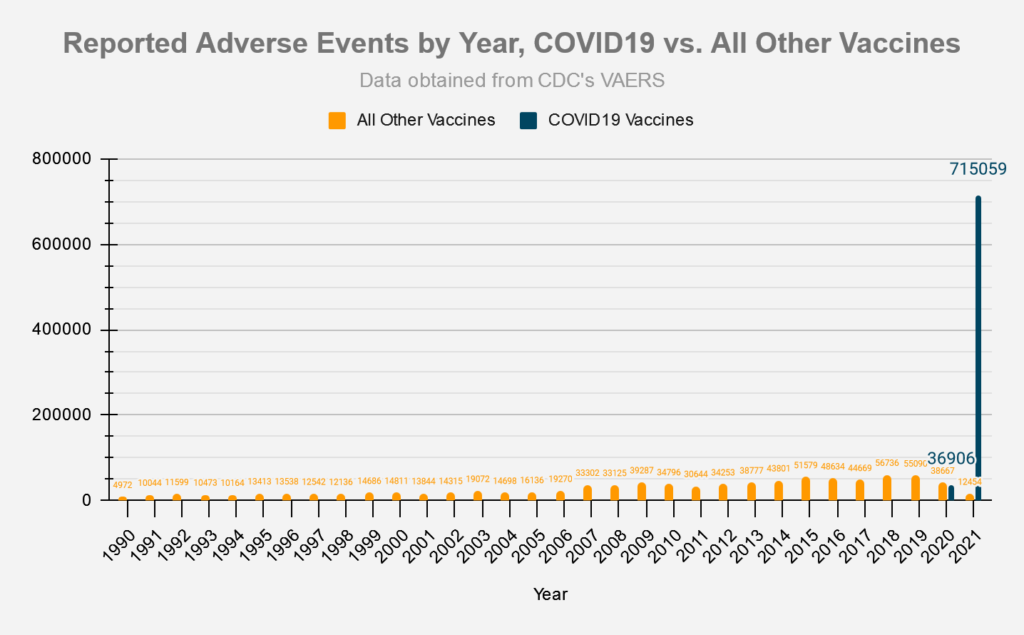
2. In 1998, Dr Andrew Wakefield published a paper about the correlation he had discovered between the MMR vaccine and the incidence of autism in children. He did not say the vaccine caused autism; he said there was a correlation which needed to be investigated further, which is an entirely appropriate thing to say because of the small sample size in his study. When this gained publicity he was vilified, hounded and struck off the medical register. He was ‘proven’ wrong, but by whom? People employed by the Pharmaceutical Industry were the ones who ‘proved’ him wrong. But is he wrong? He has recently produced a film called ‘Protocol 7’, which highlights the cover-ups involved in vaccine research and marketing. The chart below shows the increase in recommended childhood vaccines in America.
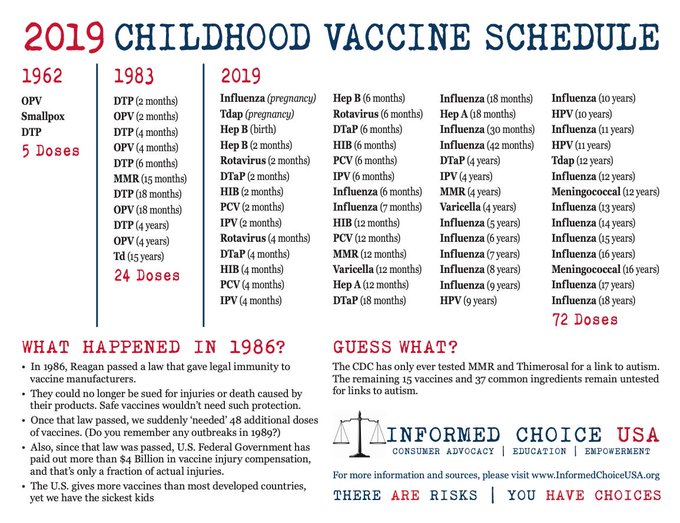
This next chart shows the prevalence of autism in America. The correlation shown here does not prove that children’s vaccines cause autism. For proof we need a mechanism by which one thing causes the other.
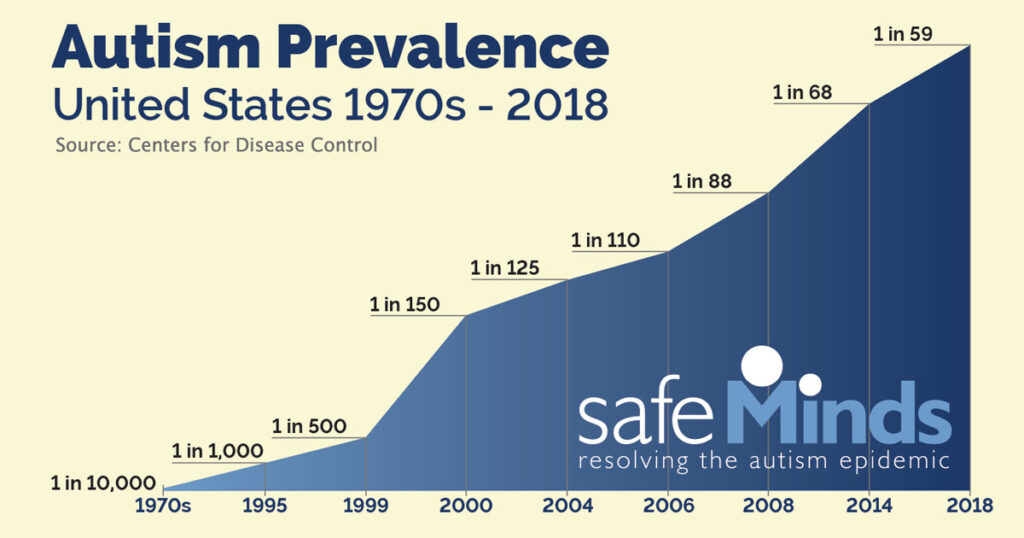
Have you ever asked for a full list of the ingredients in the injection going into your arm or your child’s arm? Apart from the attenuated virus, the majority of childhood vaccines also contain an aluminium compound, which is there to stimulate the immune system into action and promote the production of antibodies. However, aluminium is well-known to be toxic, especially to brain tissue and especially to young developing brains. Multiple injections containing aluminium compounds which can travel to the brain provide an entirely plausible mechanism for vaccine-induced autism. If you want to know more about this, there is a link to a well-referenced explanatory article below.
Two final points:
1. It is well-known that the immunity granted by a previous infection is superior to that obtained from a vaccine. It is better, therefore, for healthy younger people to catch a virus and recover from it than to be vaccinated against it.
2. Respiratory viruses enter the body through the mucosal membrane, which is the wet skin on the inside of your mouth, nose, throat and lungs. This membrane has its own immune cells which are an important first line of defence. A vaccine for a respiratory virus injected into your arm bypasses the most important immune cells for resisting such a virus.
References
Dietary components of a healthy immune system
This website has over 3,500 published scientific papers on people harmed by the ‘safe and effective’ Covid jab. Published Science Database – React19
International scientists have found autism’s cause. What will Americans do? (substack.com)
Did diseases decline because of vaccines? Not according to history… – Learn the Risk
Vaccine Roulette: Quality Control, Contamination, and Negligence. (substack.com)
